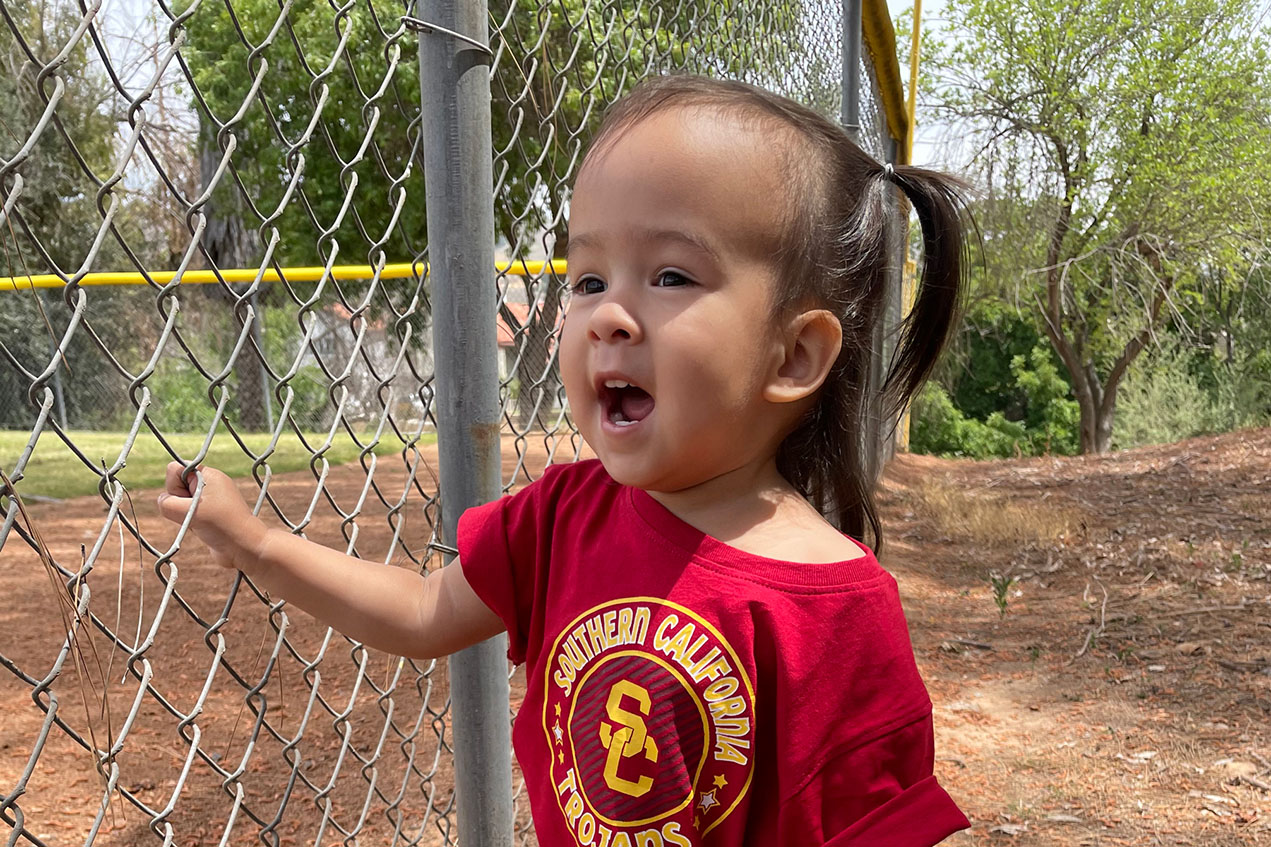Gilda Giron couldn’t help but tear up as she reflected on the past month: Her daughter, Abby, celebrated her second birthday and took her first steps — steps that seemed improbable not so long ago.
Those milestones appear even greater given what Gilda and her husband Arnuf went through just over two years ago: 13 weeks into Gilda’s pregnancy, they were told Abby had myelomeningocele, the most severe type of spina bifida. This type of spina bifida leaves the spinal cord completely exposed. If untreated, it causes fluid buildup in the brain as well as progressive nerve injury to the exposed spinal cord, which can result in abnormal brain development and various degrees of paralysis of the legs. Myelomeningocele affects approximately 1 out of every 800 babies.
What followed Abby’s diagnosis was a groundbreaking procedure conducted by a team led by Ramen Chmait, director of Los Angeles Fetal Surgery and a surgeon with Keck Medicine of USC. The minimally invasive procedure is a result of nearly a decade of research into a better solution for myelomeningocele and is becoming more widely used at surgical centers of excellence, thanks to Chmait’s research.
To continue reading this story, click here.


